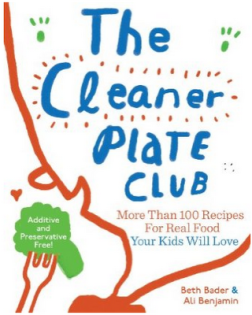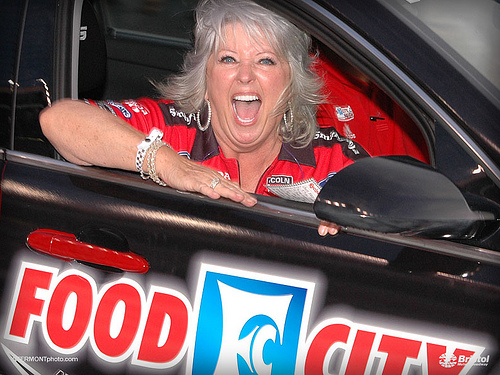About a month ago, I heard a story on NPR’s Morning Edition about a study on working mothers and multi-tasking. Moms, the study said, are on overdrive during the hours they’re with kids. Many described the hours between 5 and 8 p.m. as the “arsenic hours.” The result? Their pre-frontal cortex was overloaded, their brains frazzled, and their decision-making impaired.
“Yup,” I thought to myself. “Exactly.”
With that study in mind, I’d like to propose a change to how we think about parents and food: that rather than seeing parents’ constant reaching for convenience food as some sort of moral failing, let’s view it instead as a call for help — a form of crying “uncle” amidst a staggering number of stressors in our not-very-family-friendly society.
Here’s the thing: I am a Monsanto-hatin’, farmers-market-shoppin’, card-carrying CSA member. I believe small is beautiful, that local is groovy, that chemical-free beats chemical-laden. I know that food is a powerful way to change the world: Eating is the one thing, after all, that we all do every day — the lucky among us do it many times a day — so enormous systems have risen up to support what we consume, and how we consume it.
I love the sustainable food world. But there’s this other world I occupy, as well: that of the harried, working mom. In some ways, the two worlds overlap. After all, having children is a pretty profound motivation for saving the earth from annihilation, for fresh air and clean water and food that’s not doused with cancer-causing chemical crap. But as a parent, I have found that the two worlds don’t overlap nearly as much as they should.
Children aren’t easy. They have homework and sports practice and doctors’ appointments and medicines and sometimes a doozy of a tantrum. They desperately want their parents to read them the next chapter of Junie B. Jones, or that book about the animals that lived before the dinosaurs. They lose shoes, have 3 a.m. nightmares, resist cleaning the guinea pig cage, and demand endless attention. They are changing on a daily basis, which means that the moment you get one routine down, you already need to find another. And if your child has special needs, as so many kids do now, your life rapidly devolves into a series of therapy appointments and physicians’ visits, insurance negotiations and lines at the pharmacy counter.
And amid all of this, children are hungry. All of the time, or at least every couple of hours.
Just keeping up with it all — keeping them alive, safe, fed, their homework done, their clothes clean and shoes matching while emphasizing please and thank you, and don’t you dare call your sister a dummy — feels like a Herculean effort on many days.
 The food manufacturers know this. They know that I’m constantly running, eternally late, that the kids are hangry (hungry + angry), in the back seat, and that multitasking is multi-stressful. The food companies know that whether or not our family owns a TV (we don’t), my children will learn the brand names of junk food as readily as they’ll learn the alphabet. They know there are moments — many of them throughout the day, frankly — when when I feel like I will do anything to make the noise stop.
The food manufacturers know this. They know that I’m constantly running, eternally late, that the kids are hangry (hungry + angry), in the back seat, and that multitasking is multi-stressful. The food companies know that whether or not our family owns a TV (we don’t), my children will learn the brand names of junk food as readily as they’ll learn the alphabet. They know there are moments — many of them throughout the day, frankly — when when I feel like I will do anything to make the noise stop.
But let’s not hand our children over to the likes of Frito-Lay so quickly. I still believe that even the most stressed out parent can go beyond a Con-Agra-processed frozen Flip N’ Dip pancake with sausage links in a plastic tray. To make that happen, however, we’re going to need to start from where parents actually are, rather than where we believe they should be.
Last year, I coauthored a book with Beth Bader, The Cleaner Plate Club: Raising Healthy Eaters One Meal at a Time. We began with the premise that most parents are trying pretty hard on behalf of their kids — food-wise, and in every way. But that even when healthy calories are affordable to parents — less and less the case, these days — they need a little help. Consider:
- Plenty of parents don’t actually know how to cook. Judge me if you will, but when I first started using whole foods, my intentions and abilities were wildly out of sync. My farmers market garlic turned brown and bitter in the pan, my lettuce wilted tragically in the refrigerator, my CSA green beans were stringy and inedible, my co-op beans chalky and half-cooked. Real food doesn’t come with directions, and for those of us who grew up eating mostly packaged foods with directions, it can be an uncomfortable transition.
- It’s bigger than recipes. Never before in the history of humanity has it been so easy to find a recipe. There are millions of recipes online, and some 100 million homes get the food channel. And yet cooking remains largely a spectator sport. Even when armed with a great recipe, chances are good that parents are missing other things – knife skills, or a sense of timing and rhythm, or the confidence to say, “I can have that made before my kids have melted into the floor.” If we can help parents master techniques — not just recipes — we can make home cooking more intuitive. And more likely.
- Good food isn’t about what happens in the kitchen. When my daughter was born, I realized I didn’t know anything about feeding her. How, for example, did her taste preferences form, and how should I respond when she pursed her tiny lips? Why was it that every time I stepped into a grocery store, I had to pry Barbie Froot Snacks from her fingers with a crowbar? How could I deal with her donut-wielding auntie? Which of the conflicting pieces of advice I received from fellow parents — Keep them from sugar! Withholding treats will only make them want it more! — actually helps? And for heaven’s sake, was it really, truly necessary to play that goddamned airplane game at the dinner table?
With the book, Beth and I want to help bridge the sustainable food world with the reality of exhausted parents who are trying to put food on the table. And, while the book itself isn’t likely to get every parent back into their kitchen for every meal, we see it as a piece of a bigger puzzle — one in which we really examine what family life looks like these days, recognize that contemporary parents are struggling, and that processed food is a symptom, not a sin. And one in which families are supported in all kinds of ways — through education, through family-friendly policy, through reshaping the environment so that the healthy choices are the easy ones, rather than the heroic ones.
In the meantime, we also know that some parents might need some hand-holding to take that next step into the world of good food. That’s why, over the next few days, a series of excerpts from The Cleaner Plate Club will be appearing here on Grist. If nothing else, we hope we can move together toward a society where parents’ cries of “uncle” are a little less frequent, and a little less desperate.
Next: Shopping for kids aisle-by-aisle: Stocking up without breaking down.






